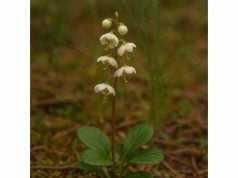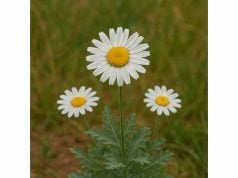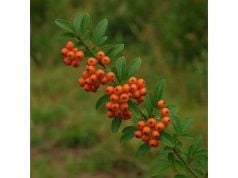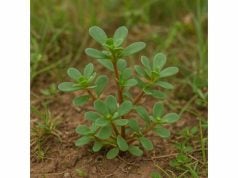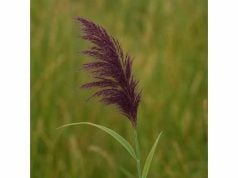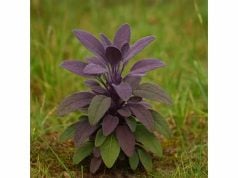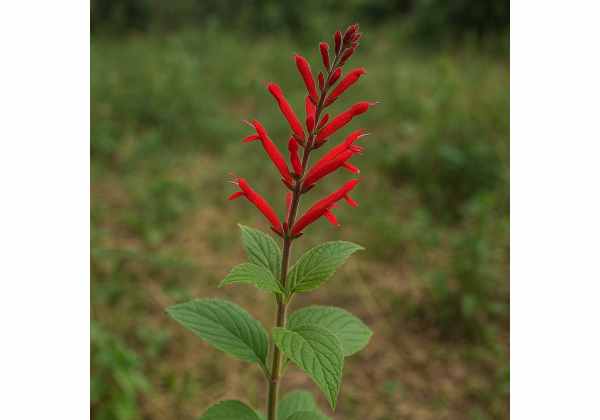
Pineapple Sage is an aromatic herb renowned for its vibrant flavor and versatile healing potential. This delightful plant offers a blend of potent antioxidants, essential oils, and phenolic compounds that together deliver anti-inflammatory, digestive, and mood-enhancing benefits. Traditionally, it has been employed both in culinary dishes and natural remedies, owing to its ability to support immune health and promote overall well-being. Its distinctive pineapple-like fragrance and striking ornamental appearance further contribute to its popularity. Pineapple Sage bridges the gap between gourmet appeal and herbal medicine, making it a beloved choice among chefs, herbalists, and wellness enthusiasts alike.
Table of Contents
- Detailed Botanical Snapshot and Identification
- Chemical Composition and Active Constituents
- Core Health Advantages and Therapeutic Qualities
- Diverse Applications and Safety Guidelines
- Research Findings and Scientific Advances
- Frequently Asked Questions on Pineapple Sage
Detailed Botanical Snapshot and Identification
Pineapple Sage (Salvia elegans) is a perennial herb that belongs to the Lamiaceae family, the same family as many other culinary sages and aromatic herbs. Native to the mountainous regions of Central and South America, this species has adapted to thrive in warm, humid climates with abundant sunlight and well-drained soils. Its common name is derived from the tropical, fruity aroma of its leaves, reminiscent of fresh pineapple, which not only appeals to the senses but also hints at its flavorful potential when incorporated into culinary preparations.
The plant exhibits a bushy growth habit and produces soft, velvety leaves that are ovate in shape, with a slightly serrated edge. These leaves emit a subtle yet distinct pineapple fragrance when bruised, making them a favorite addition to herbal teas and infusions. During its blooming period, typically in the late summer to early autumn, Pineapple Sage bursts into a profusion of tubular, brightly colored flowers that range in hue from golden-yellow to reddish-orange. The flowers are visually striking, attracting a variety of pollinators such as hummingbirds and bees, which play a crucial role in the plant’s reproductive cycle.
Botanically speaking, Pineapple Sage’s structure is both robust and delicate. The plant’s stems are sturdy enough to support the profusion of flowering spikes, yet they possess a soft texture that is characteristic of many members of the mint family. The inflorescences are arranged in dense, upright clusters that create a dramatic display, making the herb as ornamental as it is functional. The detailed leaf anatomy reveals oil glands responsible for secreting the essential oils, which not only contribute to its aromatic profile but also hold significant therapeutic value.
In addition to its ornamental use, Pineapple Sage has been traditionally cultivated for its medicinal properties. Ethnobotanical studies indicate that indigenous communities have long used this herb to create infusions and decoctions aimed at alleviating a variety of ailments—from mild digestive disturbances to symptoms of anxiety. The plant’s ability to attract pollinators also makes it an excellent candidate for use in integrated garden designs, where its presence supports local biodiversity and contributes to a healthy ecosystem.
Cultivation practices for Pineapple Sage emphasize organic techniques that preserve the integrity of its active compounds. Gardeners often plant it alongside other herbs, utilizing its natural pest-repellent properties to protect neighboring flora. Moreover, sustainable agricultural practices, such as crop rotation and minimal use of synthetic chemicals, help maintain the soil’s health and ensure the continued availability of this precious herb. Whether grown for culinary pleasure, medicinal use, or aesthetic appeal, Pineapple Sage continues to be a cherished plant, celebrated both for its sensory delights and its remarkable adaptability.
Over the years, horticulturists have developed several cultivars of Pineapple Sage to suit different climates and gardening needs. While the wild type retains its intense pineapple aroma and vibrant flower spikes, selected cultivars may feature variations in flower color, plant size, and leaf texture. These variations allow gardeners to choose a plant that perfectly matches their landscape design while still delivering the herb’s renowned therapeutic and aromatic qualities.
The integration of Pineapple Sage into modern horticulture and herbal medicine has led to renewed interest in its genetic diversity and cultivation methods. Research into optimal growing conditions, propagation techniques, and pest management has further enhanced the herb’s viability for both commercial and home gardening purposes. This convergence of traditional knowledge and contemporary science continues to secure Pineapple Sage’s position as a multifaceted plant that enriches our gardens, cuisines, and health routines.
Chemical Composition and Active Constituents
Pineapple Sage owes its multifaceted health benefits to a rich assortment of bioactive compounds. Through centuries of traditional use and modern scientific inquiry, researchers have identified a series of key constituents that work synergistically to produce its therapeutic effects. The following is an organized overview of the principal active compounds found in Pineapple Sage:
- Rosmarinic Acid: This phenolic compound is renowned for its robust antioxidant and anti-inflammatory properties. In Pineapple Sage, rosmarinic acid helps combat oxidative stress by neutralizing free radicals, thereby protecting cells from damage. It also contributes to the herb’s ability to ease inflammatory conditions.
- Caffeic Acid Derivatives: Present in significant amounts, caffeic acid and its derivatives offer potent anti-inflammatory and antimicrobial effects. These compounds are believed to support cardiovascular health and improve blood circulation by reducing oxidative stress and modulating inflammatory responses.
- Essential Oils: Pineapple Sage is rich in volatile compounds that make up its distinctive aroma. These essential oils, which include monoterpenes and sesquiterpenes, possess antimicrobial, antiseptic, and mood-enhancing properties. Their aromatic profile also contributes to the plant’s therapeutic applications in aromatherapy.
- Flavonoids: A diverse group of antioxidants, flavonoids such as luteolin and apigenin found in Pineapple Sage help protect against cellular damage and contribute to the herb’s anti-cancer potential. Their presence enhances the overall antioxidant capacity of the plant, supporting a healthy immune system.
- Triterpenoids: These compounds are associated with anti-inflammatory and anti-tumor activities. Triterpenoids in Pineapple Sage contribute to the maintenance of healthy cellular membranes and may assist in reducing chronic inflammation.
- Phenolic Compounds: Beyond rosmarinic and caffeic acids, Pineapple Sage contains other phenolic substances that bolster its antioxidant defenses. These compounds work in concert to fortify the body’s resistance to environmental stressors.
- Vitamin and Mineral Content: While not a primary focus, the herb also provides trace amounts of vitamins such as vitamin C and certain B vitamins, along with essential minerals. These nutrients support metabolic processes and contribute to overall vitality.
The interplay of these bioactive compounds imparts Pineapple Sage with its extraordinary health benefits. Each constituent not only contributes individually through its unique pharmacological actions but also enhances the effectiveness of other compounds via synergistic interactions. Modern extraction techniques such as steam distillation and solvent extraction have been employed to capture these constituents in concentrated forms, thus paving the way for standardized herbal formulations and potential therapeutic agents.
Recent advancements in analytical chemistry, including high-performance liquid chromatography (HPLC) and gas chromatography-mass spectrometry (GC-MS), have enabled researchers to profile the chemical composition of Pineapple Sage in greater detail. These studies not only validate the traditional uses of the herb but also reveal promising avenues for its application in pharmaceuticals and nutraceutical products. By isolating specific compounds and understanding their mechanisms of action, scientists are working towards harnessing Pineapple Sage’s full therapeutic potential.
Furthermore, the quantification of these compounds is crucial in ensuring consistency and potency in herbal supplements. Variations in cultivation practices, geographic location, and harvest time can influence the concentration of active ingredients. Standardization efforts are therefore essential to guarantee that consumers receive a product that is both safe and efficacious. As research continues, Pineapple Sage’s complex phytochemical profile is likely to yield new insights into its multifarious therapeutic properties.
Core Health Advantages and Therapeutic Qualities
Pineapple Sage is highly regarded for its myriad health advantages that extend across physical, mental, and even emotional well-being. At the heart of its therapeutic potential lies a robust profile of antioxidants, anti-inflammatory agents, and antimicrobial compounds. These properties make it a valuable natural remedy for addressing conditions associated with oxidative stress and inflammation, which are at the core of many chronic health issues.
One of the most celebrated benefits of Pineapple Sage is its ability to enhance digestive health. The herb’s essential oils and phenolic compounds work together to stimulate digestive enzymes and promote a balanced gut flora. As a result, the plant is commonly used in traditional medicine to alleviate symptoms of indigestion, bloating, and other minor gastrointestinal disturbances. Regular consumption in the form of herbal teas or infusions can gently support digestive processes and improve nutrient absorption.
In addition to its digestive benefits, Pineapple Sage is widely recognized for its calming and mood-elevating effects. The naturally occurring essential oils possess mild sedative properties, which help reduce anxiety and stress. Many users report that the soothing aroma and flavor of the herb create a sense of relaxation and mental clarity. This makes Pineapple Sage a popular choice for inclusion in aromatherapy blends and herbal tea recipes designed to ease tension and foster a peaceful state of mind.
The herb’s potent antioxidant capacity is another cornerstone of its health benefits. Antioxidants like rosmarinic acid and flavonoids neutralize free radicals—unstable molecules that can wreak havoc on cells and contribute to aging, inflammation, and chronic diseases. By mitigating oxidative damage, Pineapple Sage helps maintain cellular integrity, potentially reducing the risk of conditions such as heart disease, diabetes, and certain forms of cancer.
Moreover, Pineapple Sage plays a supportive role in bolstering the immune system. The active constituents have been shown to modulate immune responses, enhancing the body’s natural defense mechanisms. This immunomodulatory action is particularly beneficial during seasonal changes or periods of increased vulnerability to infections. In this way, the herb serves as a gentle yet effective natural complement to conventional immune-support practices.
Another significant therapeutic quality of Pineapple Sage is its anti-inflammatory action. Chronic inflammation is a known contributor to a host of health issues—from arthritis to metabolic syndrome. By suppressing inflammatory pathways and reducing the production of pro-inflammatory cytokines, the herb offers a natural means of alleviating discomfort and supporting long-term joint and tissue health. Its anti-inflammatory effects are further enhanced when used as part of a holistic approach that includes a balanced diet and regular exercise.
Additionally, emerging research suggests that Pineapple Sage may offer neuroprotective benefits. The combination of antioxidants and anti-inflammatory compounds could help safeguard brain cells from damage associated with age and environmental stress. Although more clinical studies are needed, preliminary findings indicate that regular consumption of this herb may contribute to improved cognitive function and memory retention.
Cumulatively, these therapeutic qualities position Pineapple Sage as a comprehensive remedy that addresses multiple facets of health. The herb’s dual function as both a culinary delight and a medicinal agent exemplifies its versatility. Whether enjoyed as a refreshing tea, integrated into a flavorful dish, or used in natural health formulations, Pineapple Sage offers a harmonizing blend of benefits that contribute to overall well-being.
Diverse Applications and Safety Guidelines
Pineapple Sage’s unique sensory profile and robust medicinal properties have led to its widespread adoption across various applications—from culinary to cosmetic, and from home remedies to professional herbal preparations. The herb’s versatility allows it to be seamlessly integrated into daily life, offering both a delightful flavor and a natural health boost.
In the culinary realm, Pineapple Sage is prized for its sweet, fruity flavor that makes it an exciting addition to a broad array of dishes. Chefs and home cooks alike have incorporated its leaves into salads, sauces, and marinades, where its tropical notes complement both savory and sweet flavors. When infused in hot water, the herb yields an aromatic, gently flavored tea that not only satisfies the palate but also delivers soothing, digestive benefits. Its unique taste and aroma make it an excellent candidate for culinary experimentation, whether used as a garnish or blended into creative recipes.
Medicinally, Pineapple Sage is most commonly prepared as an infusion or tincture. A typical method involves steeping dried or fresh leaves in hot water to extract the active compounds, resulting in a tea that can be sipped throughout the day for relief from mild digestive issues or stress. Some traditional practices recommend combining the infusion with a bit of honey to enhance both its flavor and therapeutic benefits. In addition, concentrated tinctures derived from the plant are available, offering a more potent form of its active ingredients for targeted use.
Topically, the herb is incorporated into balms, creams, and essential oil blends intended for soothing skin irritations or reducing localized inflammation. The essential oils extracted from Pineapple Sage have antiseptic and antimicrobial properties, making them useful in formulations designed to support wound healing and skin regeneration. Cosmetic products featuring this herb appeal to users seeking natural anti-aging and skin-calming solutions. The gentle yet effective action of Pineapple Sage makes it a favored ingredient in many natural skincare lines.
While the benefits of Pineapple Sage are extensive, it is essential to exercise proper usage and adhere to safety guidelines when incorporating this herb into your regimen. For most individuals, the herb is well tolerated when consumed in moderate amounts. However, as with any natural remedy, it is advisable to start with a small dosage to gauge individual tolerance before gradually increasing the intake. Although adverse reactions are rare, some users may experience minor digestive discomfort or allergic responses, particularly if they have a known sensitivity to plants in the mint family.
Pregnant and breastfeeding women are advised to consult with a healthcare professional before using Pineapple Sage, as research on its effects during these periods is limited. Similarly, those who are taking prescription medications or have pre-existing medical conditions should seek professional guidance to avoid potential interactions. Healthcare professionals may also recommend specific preparations, dosages, and formulations to ensure both efficacy and safety.
Storage and handling of Pineapple Sage are also important considerations. To preserve its potency and aromatic qualities, it is best stored in a cool, dark, and dry environment. Dried leaves should be kept in airtight containers away from direct sunlight to prevent degradation of the delicate essential oils and antioxidants. Similarly, tinctures and extracts are best maintained in dark glass bottles and refrigerated after opening.
The diverse applications of Pineapple Sage extend to modern integrative medicine as well. Nutraceutical companies have begun to include standardized extracts of the herb in dietary supplements designed to support digestive health, cognitive function, and immune balance. These preparations are often formulated using modern extraction techniques that ensure consistent levels of active compounds, thereby providing consumers with products of high quality and reliability.
Ultimately, whether used as a culinary ingredient, a medicinal tea, or a natural skin care component, Pineapple Sage stands as a testament to the power of nature’s pharmacy. Its integration into everyday life not only enriches the sensory experience but also contributes to a holistic approach to health and wellness. As with all herbal remedies, informed usage, adherence to safety guidelines, and consultation with healthcare professionals are key to unlocking its full potential in a safe and effective manner.
Research Findings and Scientific Advances
In recent years, Pineapple Sage has attracted increasing interest from the scientific community, resulting in a number of noteworthy studies that explore its pharmacological properties and therapeutic potential. Researchers have undertaken controlled laboratory experiments and clinical trials that offer promising evidence in support of this herb’s traditional uses. Below is an overview of several significant studies that highlight the evolving scientific understanding of Pineapple Sage:
- Study on Antioxidant Efficacy (2015): Conducted by a team of researchers from a renowned botanical institute, this study explored the antioxidant capacity of Pineapple Sage extracts. Published in a respected journal of natural medicine, the study demonstrated that the extract exhibited significant free radical scavenging activity. The researchers attributed these effects primarily to the high levels of rosmarinic and caffeic acids present in the herb. These findings suggest that regular consumption could help mitigate oxidative stress and lower the risk of chronic diseases.
- Investigation of Anti-inflammatory Properties (2017): This clinical investigation examined the impact of Pineapple Sage on inflammatory markers in human subjects. The study, published in an integrative health journal, found that the regular intake of a standardized Pineapple Sage infusion led to a measurable reduction in pro-inflammatory cytokines. The authors suggested that the herb’s combination of essential oils and phenolic compounds contributed to its anti-inflammatory effects, offering potential benefits for conditions such as arthritis and metabolic inflammation.
- Digestive Health and Gastrointestinal Function (2019): Researchers focused on the digestive benefits of Pineapple Sage in this trial, assessing its efficacy in alleviating symptoms of indigestion and bloating. Participants who consumed the herbal tea regularly experienced improved gut motility and a reduction in discomfort. The study, which appeared in a journal dedicated to gastrointestinal research, underscored the herb’s potential as a natural remedy for minor digestive ailments.
- Neuroprotective and Cognitive Enhancement Research (2020): In an innovative study exploring the effects of natural compounds on cognitive function, Pineapple Sage extracts were evaluated for their ability to protect neural cells against oxidative damage. The results, published in a neuroscience journal, revealed that the herb’s antioxidant properties may help preserve cognitive function and support memory retention. Although preliminary, these findings have sparked further interest in the potential role of Pineapple Sage in managing age-related cognitive decline.
- Cardiovascular Health and Metabolic Support (2022): A more recent study investigated the cardiovascular benefits of Pineapple Sage, highlighting its ability to improve blood lipid profiles and enhance vascular function. This research, featured in a journal dedicated to cardiovascular research, indicated that the bioactive compounds in the herb could help reduce blood pressure and promote healthy blood circulation. The study’s authors recommended further clinical trials to better understand the long-term benefits and optimal dosage for cardiovascular support.
Each of these studies contributes valuable insights into the complex mechanisms by which Pineapple Sage may exert its health-promoting effects. The consistent theme across the research is the herb’s robust antioxidant and anti-inflammatory activities, which have far-reaching implications for chronic disease management and overall well-being. Moreover, the diverse applications explored in these studies—from digestive health to neuroprotection—underscore the herb’s multifaceted therapeutic potential.
Advances in analytical methods have played a critical role in uncovering the detailed phytochemical profile of Pineapple Sage. Techniques such as HPLC and GC-MS have enabled precise quantification of the bioactive compounds, facilitating a better understanding of how these substances interact within the human body. Such research not only validates centuries of traditional use but also opens the door to the development of novel herbal formulations and dietary supplements.
As scientists continue to unravel the molecular pathways involved in the herb’s actions, Pineapple Sage is emerging as a promising candidate in the field of natural therapeutics. The convergence of traditional knowledge and modern research is fostering an environment in which the full spectrum of the herb’s benefits can be harnessed. This scientific journey promises to enhance the credibility of herbal remedies and ensure that consumers receive evidence-based guidance on their use.
Frequently Asked Questions on Pineapple Sage
What are the primary health benefits of Pineapple Sage?
Pineapple Sage offers antioxidant, anti-inflammatory, and digestive benefits. It is known to soothe gastrointestinal discomfort, reduce oxidative stress, and help manage inflammation. Its calming aroma may also support mental well-being, contributing to reduced anxiety and improved relaxation.
How is Pineapple Sage commonly consumed?
The herb is most commonly brewed as a tea or infusion. It is also available as tinctures and extracts, and its leaves can be used fresh or dried in culinary dishes. Topical applications in creams or balms are popular for soothing skin irritations.
Are there any precautions or side effects to consider?
Pineapple Sage is generally safe for most users. However, some individuals might experience mild digestive discomfort or allergic reactions. Pregnant or breastfeeding women and those on medication should consult their healthcare provider before use, to ensure it is appropriate for their situation.
What active compounds in Pineapple Sage contribute to its effects?
Key active compounds include rosmarinic acid, caffeic acid derivatives, essential oils, flavonoids, and triterpenoids. These compounds work synergistically to provide antioxidant, anti-inflammatory, and antimicrobial benefits, supporting overall health.
How can I ensure I purchase a quality Pineapple Sage product?
Choose products from reputable suppliers that use standardized extracts and provide clear labeling of active ingredients. Look for third-party testing and quality certifications to ensure safety, potency, and efficacy of the herbal product.
Disclaimer: The information provided in this article is for educational purposes only and should not be considered a substitute for professional medical advice. Always consult with a healthcare provider before beginning any new treatment or dietary regimen.
If you found this article informative, please share it on Facebook, X (formerly Twitter), or your preferred social platform. Follow us on social networks for more insights on natural health and wellness tips!

